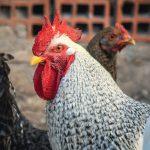As Nigeria’s population continues to grow, the demand for livestock products is expected to increase. This makes it more important for you, as a farmer, to adopt technology in your farming practices.
Given that it contributes more than 22.35% of Nigeria’s GDP, agriculture is one of the most important economic sectors in the country. The livestock industry is a significant contributor to Nigeria’s agricultural sector, with a vast majority of the population involved in livestock farming, Technology’s use in livestock farming has been under discussion for a while now.
Technology is increasingly changing the landscape of the industry by assisting you in streamlining your processes and raising output. In this article, I’ll share the benefits of technology in livestock farming in Nigeria.
Improves Efficiency
Efficiency improvement is one of the technology’s most important benefits for livestock farming. You can automate a number of procedures thanks to technology, which cuts down on the time and labor needed to complete particular jobs. The adoption of automatic feeders, waterers, and waste management systems, for instance, minimizes the need for physical work, which can be costly and time-consuming. This technology speeds up the pace at which tasks involving cattle are completed while simultaneously lowering labor expenditures.
The management of animal health is another area where technology can increase effectiveness. You can monitor each animal’s health and well-being by employing electronic identification and tracking systems to maintain tabs on their herd or flock. This technology aids in the early detection of sick animals, enabling you to take the required precautions to stop the disease from spreading to other animals in the herd. Technology allows you to track the weight gain of their livestock, which helps them choose the best feeding schedule for each animal and boosts productivity. See how to increase productivity on your pig farm.
Better Quality of Livestock Products
The use of technology is important for boosting the quality of animal products. High-yielding breeds that produce top-notch meat, milk, and eggs have been created thanks to the application of contemporary breeding methods including artificial insemination and embryo transfer. You can breed animals with desirable features like quick development, high milk output, and high-quality meat by applying technology. This breeding method raises the production of the farm as a whole while also enhancing the quality of livestock goods.
Technology also helps in ensuring that livestock products meet international standards. With the use of electronic tagging and tracing systems, you can track the entire production process of your livestock products, from breeding to processing and packaging. This tracking system ensures that the product meets all necessary regulations, such as food safety and animal welfare standards.
Data Management
In livestock farming, technology also helps to improve data management. You can save and analyze a lot of data, including animal health records, breeding history, and production statistics, by using software and mobile applications. Making educated judgments regarding managing animal health, breeding plans, and feeding programs is possible with the help of this data.
Tracking expenses and income is made easier by data management. Farmers that use accounting software can keep track of their costs and income, enabling them to make wise financial decisions. Additionally, this technique aids farmers in managing their cash flow, which is crucial for the long-term viability of their operations.
Better Marketing
Technology plays a role in enhancing the marketing of animal products. You can access a wider audience, including markets abroad, by using the internet and social media. You can expose your products to potential buyers by developing an online presence, which will boost their sales and income.
The management of the supply chain is enhanced by technology as well. You can follow your products from the farm to the consumer by using electronic labeling and tracing devices. Ensuring that goods are delivered to the market promptly and in good condition helps to increase customer satisfaction and loyalty.
Enhances Sustainability
Technology also aids in enhancing livestock farming’s sustainability. You can lessen your dependency on fossil fuels and hence their carbon footprint by using renewable energy sources like solar and wind energy. In Nigeria, the use of technology in livestock farming is growing in popularity as more farmers employ cutting-edge methods and tools to streamline their businesses.
The use of technology in agriculture has significantly increased recently as farmers look to boost yields, cut costs, and boost productivity. In the cattle agricultural sector, where technology is being employed to enhance breeding, feeding, and management techniques, this tendency is particularly clear. We shall examine the benefits of utilizing technology in cattle husbandry in this post.
Better Animal Health
One of the most significant advantages of using technology in livestock farming is the ability to improve animal health. This is important in Nigeria since the country frequently experiences infections including African swine fever, avian influenza, and Newcastle disease. You can monitor the health of their animals in real-time and take preventive action to stop the spread of diseases by employing technology like sensors and monitoring systems.
For instance, to make sure that livestock is kept in the best possible circumstances, you can use sensors to keep an eye on the temperature, humidity, and air quality in your barns. You can track an animal’s activity levels, heart rate, and body temperature using wearable equipment to keep an eye on its health. This allows farmers to identify disease symptoms early and take steps to stop the disease from spreading to other animals.
Aids Breeding Practices
Technology can be used to enhance cattle farming’s breeding practices. You can selectively breed animals to develop desirable features like increased milk output or disease resistance through genetic testing and breeding procedures. This might greatly increase the productivity and profitability of livestock farming.
If you’re a dairy farmer, for instance, you can use genetic testing to find cows that produce more milk and pair them with bulls that share those characteristics. As a result, the children may produce more milk than their parents did. Similarly, pig farmers can develop pigs with better meat quality and disease resistance through selective breeding techniques.
Better Feeding
Another advantage of using technology in livestock farming is the ability to improve feeding practices. You can guarantee that your animals receive a consistent and balanced diet, which is important to their health and productivity, by employing automated feeding systems.
Automated feeding programs can also cut back on waste and feeding expenses. In order to ensure that animals receive the proper nourishment at the appropriate time, you can, for instance, employ a computerized feeding system to supply feed to them in precise amounts and at specified times. Avoiding overfeeding can increase animal growth rates and save feed expenditures.
Better Management
Technology can also be used to improve management practices in livestock farming. You can monitor their operations in real-time and make data-driven decisions by using data analytics and management tools. In order to monitor the performance of certain animals, such as their weight gain, milk yield, or egg production, you can employ the software.
You can track the price of inputs like feed and labor using software, and they can spot places where costs can be cut. This enables you to improve their operations for optimal effectiveness and profitability using data-driven decisions.
Conclusion
Technology has the ability to change the livestock business in Nigeria for good. There are several advantages and potential rewards to integrating technology into farming processes. Therefore, it is important for livestock farmers in Nigeria to adopt technology and benefit from its many advantages. To stay competitive and effective in the market as a livestock farmer, it’s essential to keep up with the most recent technology developments and implement them into your agricultural methods.
Although adopting technology in livestock farming demands a large investment, the rewards surpass the expenses by a wide margin. You can increase profit and reduce losses by incorporating technology into livestock production. Remember that technology should not replace conventional farming methods; rather, it should complement them.


